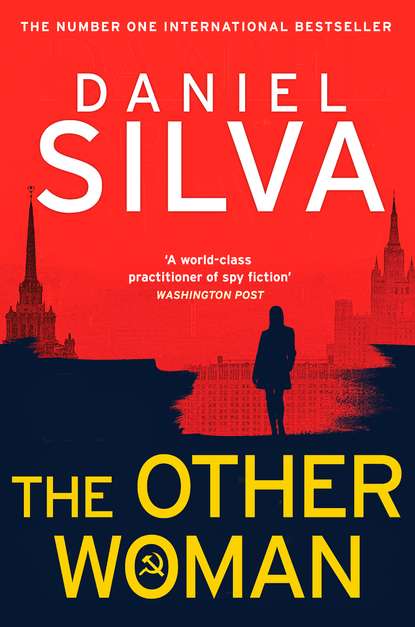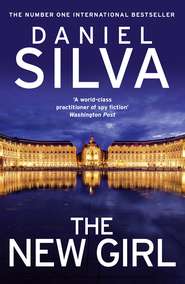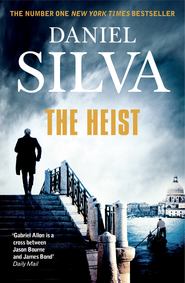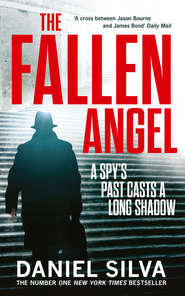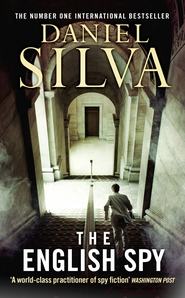По всем вопросам обращайтесь на: info@litportal.ru
(©) 2003-2024.
✖
The Other Woman
Автор
Год написания книги
2019
Настройки чтения
Размер шрифта
Высота строк
Поля
“How?”
“By bringing me the name of the person who signed Kirov’s death warrant.”
“It wasn’t me,” quipped Yaakov.
“I’m glad we cleared that up.” Gabriel looked at Rimona. “How about you? Did you betray Kirov to the Russians?”
Rimona frowned.
“Or maybe it was you, Yossi. You always struck me as the treacherous type.”
“Don’t look at me, I’m only an analyst.”
“Then go back to your office and start analyzing. And bring me that name.”
“It’s not something that can be done quickly. It’s going to take time.”
“Of course.” Gabriel sat down at his desk. “You have seventy-two hours.”
The rest of the day passed with a torture-chamber slowness; there seemed to be no end to it. There was always one more question for which Gabriel had no answer. He consoled himself by attempting to console others. He did so in small gatherings, for unlike the headquarters of the CIA or MI6, King Saul Boulevard had no formal auditorium. It was Shamron’s doing. He believed that spies should never congregate in their place of work, either for purposes of celebration or for mourning. Nor did he approve of American-style motivational speeches. The threats facing Israel, he said, were incentive enough.
In late afternoon, as vermilion light flooded Gabriel’s room, he received a summons from the prime minister. He cleared his desk of several routine matters, checked in on a pair of ongoing operations, and at half past eight climbed, exhausted, into his motorcade for the drive to Kaplan Street in Jerusalem. Like all visitors to the prime minister’s office, he was forced to surrender his mobile phone before entering. The anti-eavesdropping box into which he placed the device was known as the “beehive,” and the secure area beyond was the “fishbowl.” The prime minister greeted Gabriel cordially but with a distinct coolness. An inquiry involving his personal finances was threatening to unravel his premiership, the longest since David Ben-Gurion’s. The last thing he needed now was a scandal involving his intelligence service.
Ordinarily, Gabriel and the prime minister adjourned to the comfortable seating area for briefings or private discussions, but on that evening the prime minister chose to remain at his desk beneath the portrait of Theodor Herzl, founder of the nineteenth-century Zionist movement that led to the reconstitution of Jewish rule over a portion of historic Palestine. Under Herzl’s unremitting gaze, Gabriel relayed the facts as he knew them to be. The prime minister listened impassively, as motionless as the man in the photograph over his shoulder.
“Do you know how I spent my day?” he asked when Gabriel had finished.
“I can only imagine.”
“Eighteen of my foreign counterparts took it upon themselves to phone me directly. Eighteen! That’s the most in a single day since our last war in Gaza. And all of them asked the same question. How could I be so reckless as to permit my celebrated intelligence chief to gun down a Russian intelligence officer in the heart of Vienna?”
“You did no such thing. Nor did I.”
“I tried to explain that, and not a single one believed me.”
“I’m not sure I would have believed you, either,” admitted Gabriel.
“Even my friend in the White House was skeptical. Some nerve,” murmured the prime minister. “He’s in more trouble than I am. And that’s saying something.”
“I don’t suppose Jonathan Lancaster called.”
The prime minister shook his head. “But the chancellor of Austria kept me on the phone for almost an hour. He told me he had incontrovertible proof we were behind the Russian’s murder. He also asked me whether we wanted the body of our assassin back.”
“Did he elaborate on the evidence?”
“No. But it didn’t sound like he was bluffing. He made it clear that diplomatic sanctions are on the table.”
“How serious?”
“Expulsions. Maybe a full break in diplomatic relations. Who knows? They might issue an arrest warrant or two.” The prime minister regarded Gabriel for a moment. “I don’t want to lose a Western European embassy over this. Or the chief of my intelligence service.”
“On that,” said Gabriel, “we are in complete agreement.”
The prime minister glanced at the television, where a newscast played silently. “You’ve managed to dislodge me from the lead position. That’s quite an accomplishment.”
“Trust me, it wasn’t my intention.”
“There are serious voices calling for an independent review.”
“There’s nothing to review. We didn’t kill Konstantin Kirov.”
“It certainly looks like you did. A review might be necessary for appearances’ sake.”
“We can handle it ourselves.”
“Can you?” The prime minister’s tone was dubious.
“We’ll find out what went wrong,” said Gabriel. “And if we bear any blame, appropriate measures will be taken.”
“You’re starting to sound like a politician.”
“Is that supposed to be a compliment?”
The prime minister smiled coldly. “Not at all.”
8 (#ulink_1665a7d4-3c43-5122-bcb6-6f70db8ce5d4)
NARKISS STREET, JERUSALEM (#ulink_1665a7d4-3c43-5122-bcb6-6f70db8ce5d4)
Chiara rarely watched television in the evening. Raised in the cloistered world of Venice’s Jewish ghetto, educated at the University of Padua, she regarded herself as an ancient woman and was disdainful of modern distractions such as smartphones, social media, and fiber-optic television systems that delivered one thousand high-definition channels of largely unwatchable fare. Usually, Gabriel arrived home to find her engrossed in some weighty historical tract—she was commencing work on a PhD in the history of the Roman Empire when she was recruited by the Office—or in one of the serious literary novels she received by post from a bookseller on the Via Condotti in Rome. Lately, she had started reading pulp spy novels as well. They provided her with a connection, however tenuous and improbable, to the life she had gladly given up to become a mother.
On that evening, however, Gabriel arrived at his heavily guarded apartment in the Nachlaot neighborhood of Jerusalem to find his wife glaring at one of the American cable news networks. A reporter was recounting, with obvious skepticism, Israel’s stated contention that it had had nothing to do with the events in Vienna. The chief of Israel’s secret intelligence service, he intoned, had just departed Kaplan Street. According to one of the prime minister’s national security aides, who wished to remain anonymous, the meeting had gone as well as could be expected.
“Is any of it true?” asked Chiara.
“I had a meeting with the prime minister. That’s about the extent of it.”
“It didn’t go well?”
“He didn’t offer me Chinese food. I took it as a bad sign.”
Chiara aimed the remote at the screen and pressed the power button. She wore a pair of stretch jeans that flattered her long slender legs, and a sweater the color of clotted cream, upon which her dark hair, with its shimmering auburn and chestnut highlights, tumbled riotously. Her eyes were the color of caramel and flecked with gold. At present, they were appraising Gabriel with thinly veiled pity. He could only imagine how he looked to her. The stress of the field had always been unkind to his appearance. His first operation, Wrath of God, had left him with gray hair at the age of twenty-five. He had gone swiftly downhill after that.
“Where are the children?” he asked.
“Out with friends. They told us not to wait up.” She raised an eyebrow provocatively. “We have the place all to ourselves. Perhaps you’d like to drag me to bed and have your way with me.”
Gabriel was sorely tempted; it had been a long time since Gabriel had made love with his beautiful young wife. There was no time for it. Chiara had two children to raise, and Gabriel a country to protect. They saw one another for a few minutes each morning and, if they were lucky, for an hour or so in the evening when Gabriel returned from work. He had use of an Office safe flat in Tel Aviv for those nights when events didn’t permit him to make the long drive to Jerusalem. He hated it, the flat. It reminded him of what his life had been like before Chiara. The Office had brought them together. And now it was conspiring to keep them apart.





